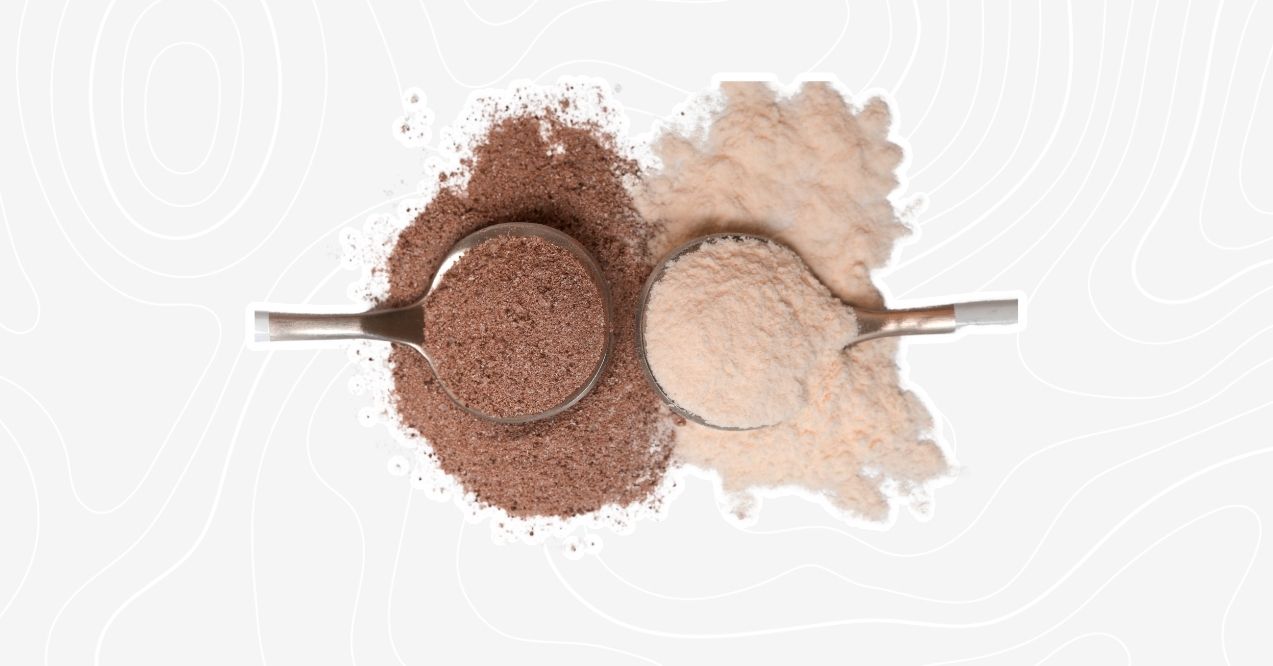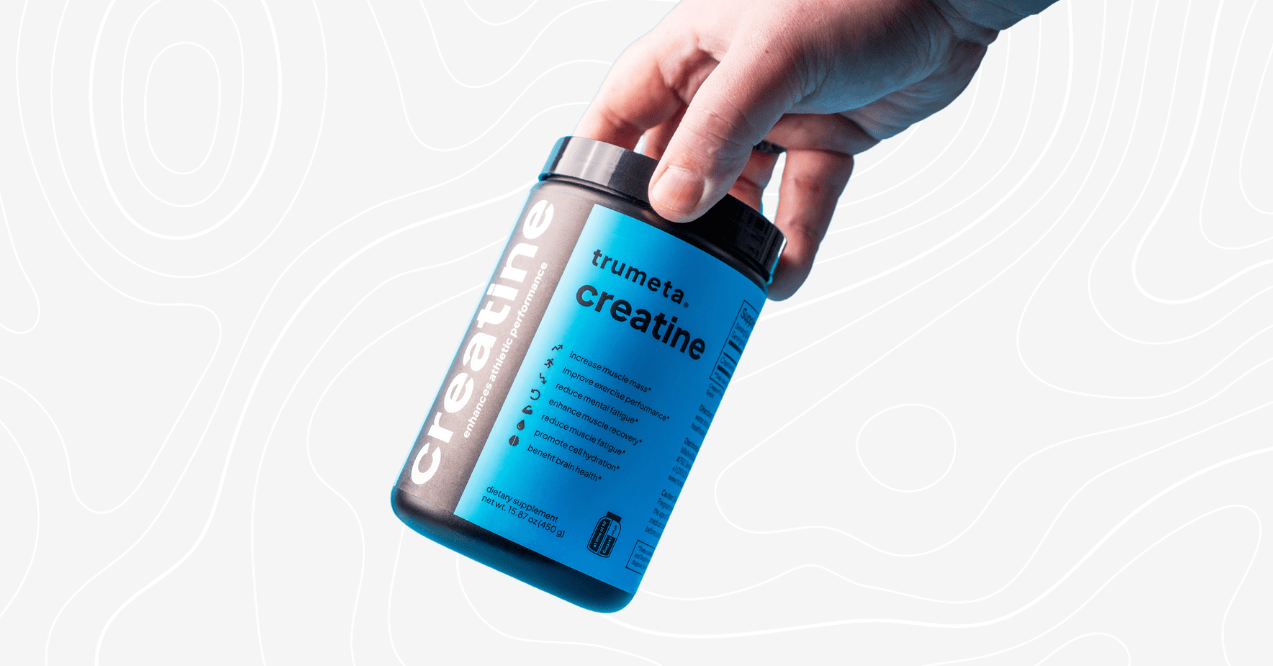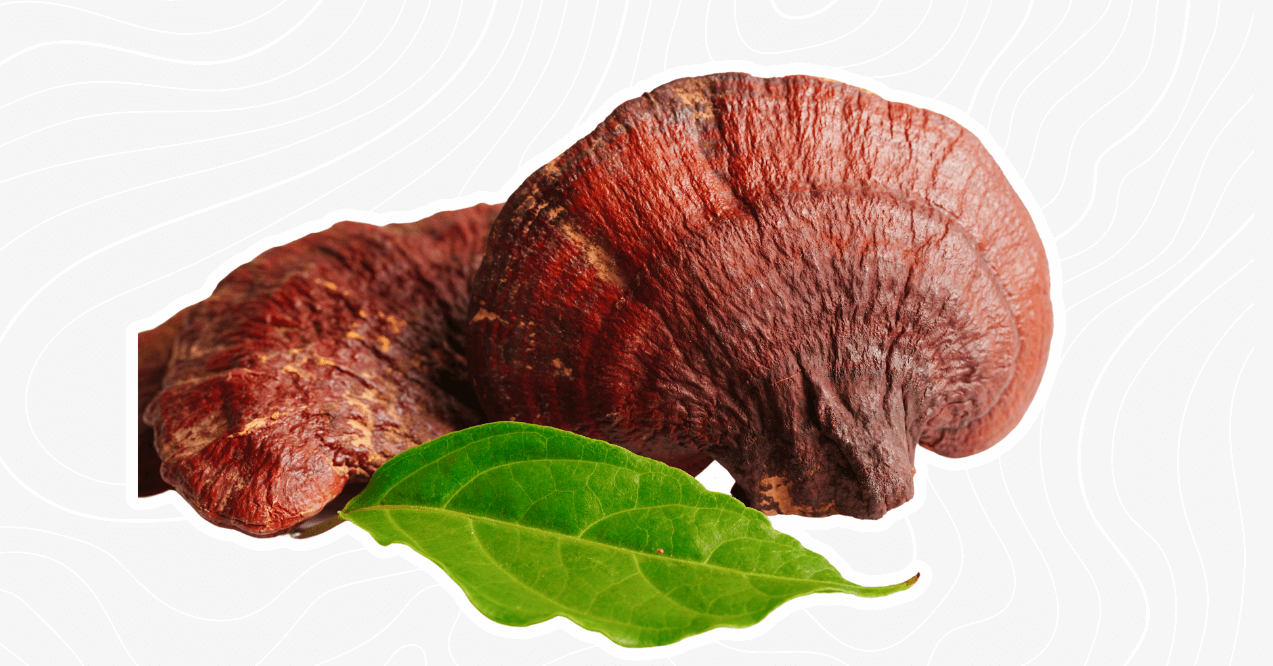

Does Creatine Make You Bloated?
If you’re a workout enthusiast, you’ve probably found yourself wondering, “Does creatine make you bloated?” Imagine you’re at the gym, determined to crush your workout goals, lifting those weights like a champ. Suddenly, it hits you — not the burn of a good set, but that uncomfortable, bloated feeling, crashing your fitness party yet again. At first, you can’t pinpoint the root cause, but then, the realization dawns. It might just be the creatine you’ve recently added to your routine.
For both experienced gym-goers and those who are new to working out, the benefits of creatine can be too tempting to ignore. Yet, if the idea of creatine-induced bloating nags at you, you’re not alone. Whether creatine is to blame for this issue is a shared concern among those chasing fitness dreams just like you. This popular supplement promises efficient bulking, but is there a trade-off? Do gains come with the price of unwelcome bloat? Can creatine cause headaches and other side effects?
In this guide, we will provide you with comprehensive information on creatine and bloating. This includes scientific explanations, myth-busting, and empowering knowledge to support your fitness journey. No more doubts! Let’s explore the impact of regularly taking creatine on post-workout comfort and answer the question once and for all: Does creatine cause bloating?
What Is Creatine?
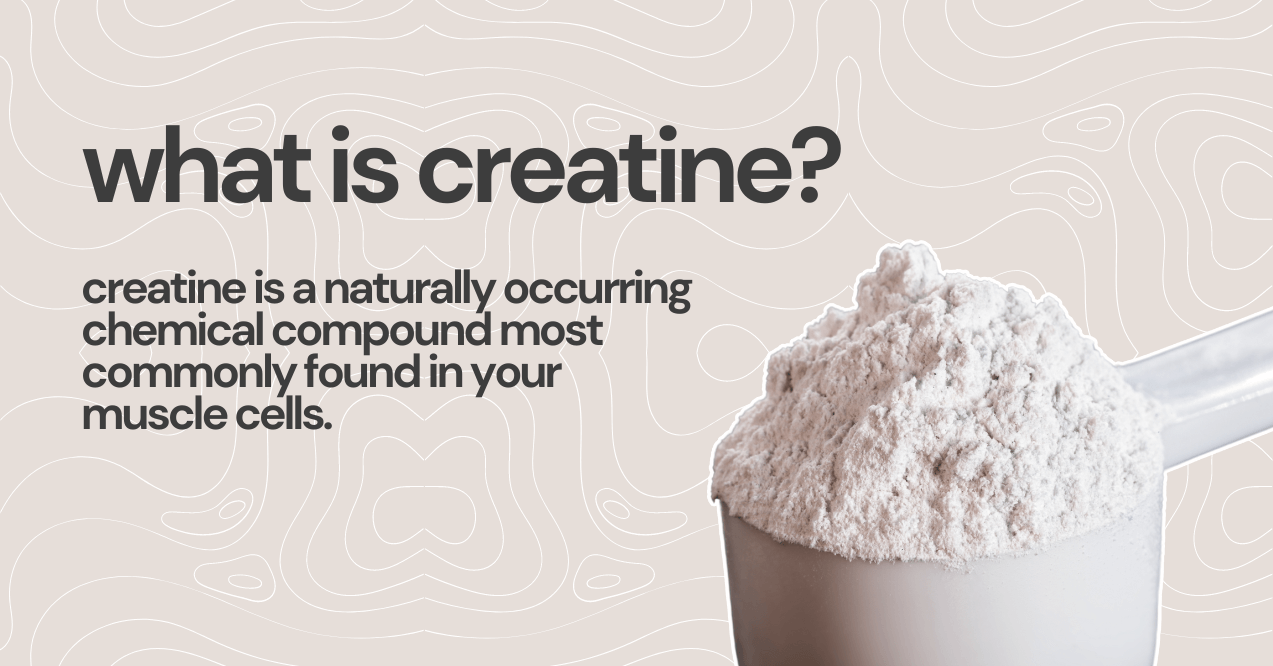
Creatine is a naturally occurring chemical compound most commonly found in your muscle cells. It is made up of amino acids, such as arginine, glycine, and methionine, and is synthesized in the liver, pancreas, and kidneys. Although this substance is key in fueling your muscles, it does not directly affect their growth. However, the increased energy availability may indirectly assist in muscle development by supporting robust and sustained training sessions.
Roughly 95% of the creatine in your body is found in your muscles. The importance of this substance lies in its ability to help produce more adenosine triphosphate (ATP) — the main energy source for cells. This function comes in especially handy during high-intensity activities like weightlifting or sprinting. It helps your body sustain short bursts of intense effort, providing the energy required for muscle contractions.
While red meat and fish naturally contain creatine, the concentration may not be sufficient for performance benefits. When it comes to supplements, creatine monohydrate is often recommended as a common and well-researched natural variant. Synthetic creatine products are also available, but they have minimal differences in their impact on performance.
What Are the Benefits of Creatine?
It doesn’t matter if you’re a workout veteran or a newcomer. You’ve probably heard about creatine in the locker room of your gym or from your personal trainer. This supplement offers a myriad of advantages that extend beyond the surface of your workout routine. So, before we answer the question, “Does creatine make you bloated?” Let’s unravel the top three perks that make creatine a game-changer in your fitness journey:
Increased Muscle Levels
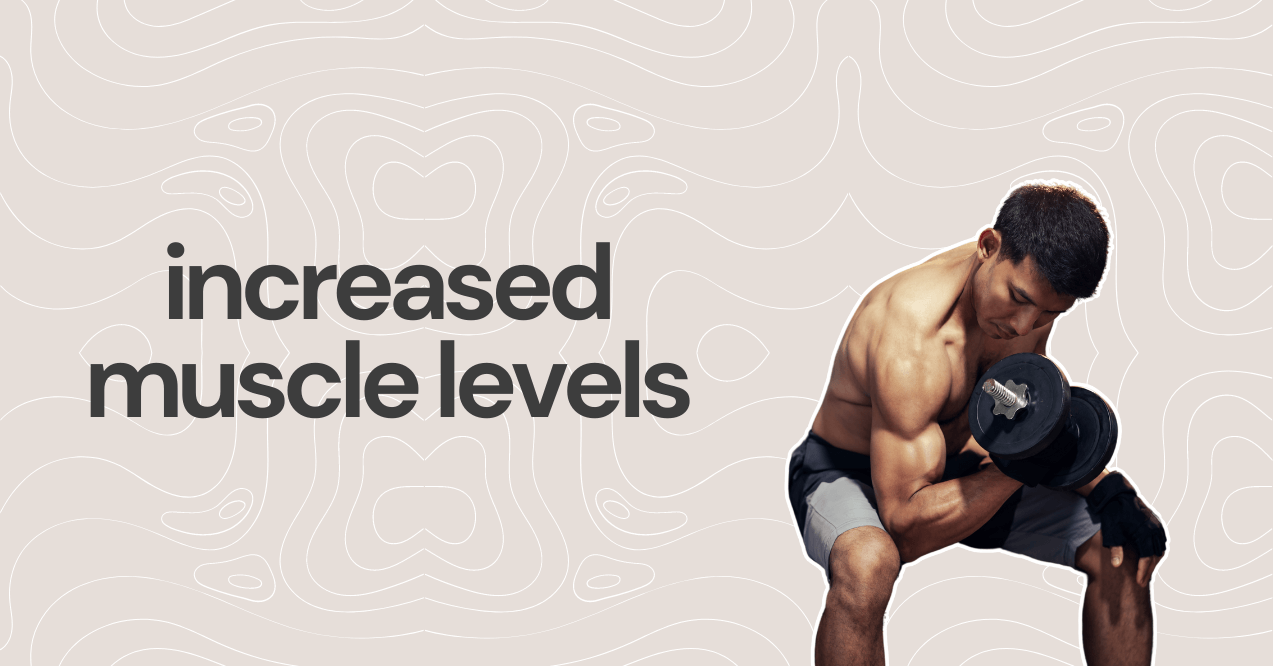
Creatine can modify numerous cellular pathways that induce new muscle growth. For instance, it stimulates the production of proteins that facilitate the development of new muscle fibers. Additionally, it may increase the levels of insulin-like growth factor 1 (IGF-1), a hormone that encourages muscle mass gains.
Increased Work Capacity and Improved Training

During exercise, your body uses ATP faster than it can reproduce it. Creatine helps create a steady supply of these molecules in your muscles so they can tolerate more intense activity. This compound increases your muscles’ phosphocreatine stores, which aids the formation of more ATP when you need it the most.
Research has shown that creatine supplementation not only enhances your strength and power output but also helps you to recover more quickly. This means that you may be able to do more work and increase your overall work capacity, leading to more significant strength gains.
Greater Increases in Lean Body Mass
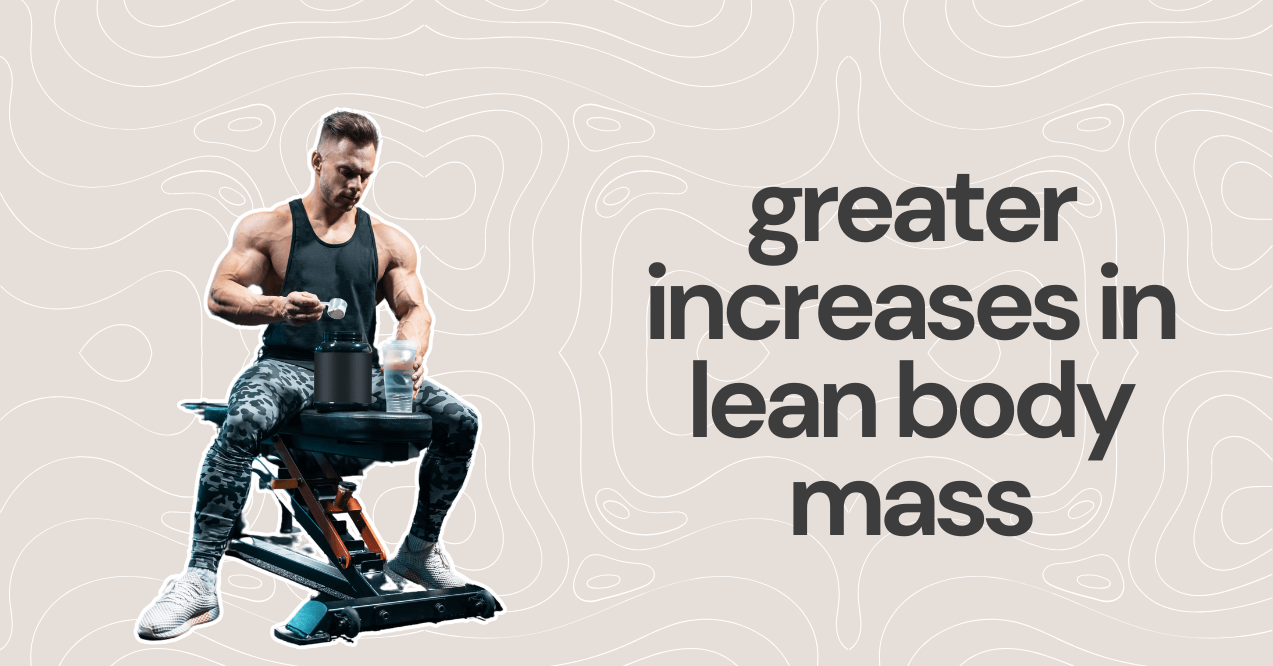
As you engage in more demanding workouts, creatine steps in to augment your energy reservoirs, allowing you to sustain heightened effort levels. This boosted capacity for intense training, over time, contributes to the potential for greater gains in lean body mass.
Studies reveal that creatine supplementation may increase muscle strength and endurance in those undergoing resistance training. It might result in significant increases in muscle mass for both untrained individuals and elite athletes.
Understanding Whether Creatine Makes You Bloated
Now, let’s unpack the question on your mind: does creatine make you bloated? When you introduce it into your routine, creatine kicks off a process called cellular hydration. Simply put, it pulls water into your muscle cells to enhance their fullness and performance — which is generally a good thing in the grand scheme of fitness. However, while your muscles may appreciate the boost, your comfort might take a moment to catch up.
The extra water influx, technically known as water retention, can manifest as a slight increase in weight and possibly a feeling of fullness. However, this phenomenon is often misinterpreted as true bloating, which typically involves uncomfortable distention and digestive distress.
It’s important to differentiate between the muscle volumization caused by creatine, which is a good thing, and the bloated feeling that might concern you. It’s a matter of perspective and recognizing that what’s occurring is a normal aspect of the creatine process. If you’re worried about abdominal discomfort, taking probiotics regularly may help you feel better.
Similarly, many women wonder about other natural processes, such as can ovulation cause bloating? Understanding that various biological activities can impact your body’s response helps in managing expectations and adapting your fitness routine accordingly.
If you’re worried about abdominal discomfort, taking probiotics regularly may help you feel better.
Does Creatine Bloating Go Away?
So now we’ve answered the million-dollar question, “Does creatine make you bloated?” It sometimes does, but the good news is it’s not permanent. Besides, the issue is typically localized within muscle cells, not causing general abdominal distention like typical bloating.
While creatine bloating may be a transient guest, its impact is minimal compared to the lasting performance and muscle-building benefits. With smart management strategies and a focus on overall health, you might enjoy the rewards of creatine without the bloat becoming a permanent resident.
How Long Does Creatine Bloating Last?
Creatine-induced water retention is more noticeable during the initial loading phase (20-25 grams daily for 5-7 days). Contrary to what you may believe, this isn’t fat gain or actual abdominal bloating but simply your muscles drawing in more water to facilitate creatine uptake. However, the effect typically subsides within a few weeks when you switch to the maintenance dose (3-5 grams daily).
So, does creatine make you bloated? Not always. Keep in mind that your individual response to taking this compound may vary. Before starting any new supplement, especially if you have existing health conditions, you must ask a healthcare professional for advice.
How to Prevent Bloating From Creatine?
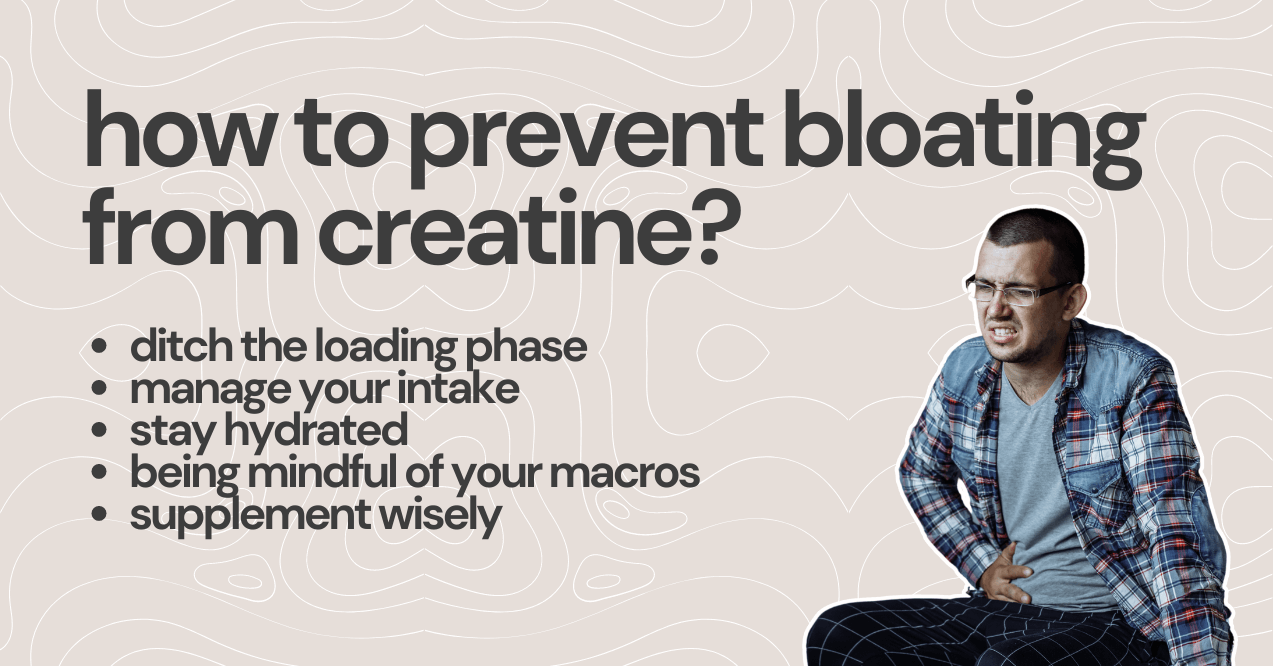
Does creatine make you bloated? Yes. Still, as your body adapts to the increased creatine intake, it becomes more efficient at absorbing and utilizing the compound, minimizing the water uptake and the associated feeling of fullness. Some tips for taming the temporary puff are:
- Ditching the loading phase: The high-dose creatine intake during the loading phase can aggravate water retention. After all, you’re introducing a new substance into your body, and even when it naturally occurs in your muscle cells, the extra supply may make your body freak out initially. To keep things as normal as possible, opt for a gradual intake of 3-5 grams per day instead.
- Managing your intake: If you’re experiencing water retention when taking creatine, even after skipping the loading phase, listen to your body. You might want to reduce your creatine intake to the minimum possible and go from there. You can always increase it gradually and see what works for you. When in doubt, ask a healthcare professional for guidance.
- Staying adequately hydrated: Drinking enough water helps regulate creatine absorption and minimize bloating. It will ensure the supplementary creatine goes where it needs to and gets evenly distributed throughout your body. Aim for 8-10 glasses of water per day for enhanced results.
- Being mindful of your macros: Fuel your body with a balanced, protein-rich diet that includes complex carbohydrates to support muscle growth and optimal creatine utilization. This reduces the reliance on muscle stores for energy, minimizing water influx.
- Supplementing wisely: Choose high-quality creatine supplements from reputable brands to ensure purity and optimal absorption. You can choose between different types of creatine, including creatine monohydrate, creatine anhydrous, micronized creatine, creatine hydrochloride (creatine HCI), creatine ethyl ester, buffered creatine, creatine magnesium chelate, liquid creatine, and creatine phosphate.
High-quality creatine, like the Creapure® found in Trumeta Creatine, offers several benefits. It significantly enhances muscle strength and size through improved protein synthesis, leading to better performance in high-intensity workouts and sports. Creatine boosts energy production in muscles, allowing for longer, more intense training sessions. It also has potential cognitive benefits, such as improved memory and brain function, particularly under stress or sleep deprivation.
Additionally, creatine promotes post-workout recovery, helping with muscle damage and soreness, and aids in muscle restoration and growth. Moreover, when used responsibly, high-quality creatine like does not typically cause severe bloating, making it an advantageous supplement for athletes and fitness enthusiasts.
This blend of physical and mental enhancements, coupled with its safety profile regarding bloating, makes Trumeta Creatine a popular choice in the fitness community.

Conclusion
Bloating after a workout? Does creatine really make you bloated? This issue might just be a small bump in the road as you work for your dream body. However, it must not discourage you from pursuing your fitness goals. Instead, view it as an opportunity to fine-tune your approach and make informed choices.
- The bloat when taking creatine is due to cellular hydration.
- The problem is more prevalent during the initial loading phase.
- Creatine water retention is temporary and will subdue within a few weeks.
- You can take several measures to minimize the impact of creatine supplementation.
Remember, the journey to a stronger you is a process filled with learning and adjustments. If bloating is a concern, consider exploring supportive supplements like Trumeta Metabolic Greens or Reds, designed to complement your creatine regimen.
Creatine induces bloating by promoting cellular hydration in muscles. As it draws water into muscle fibers, a positive effect on performance and muscle fullness occurs. This growth, while constructive, can be perceived subjectively as bloating, especially if you’re particularly sensitive to these types of changes. However, this is not a permanent issue, and your body should go back to normal once it gets used to your creatine intake.
Yes and no. Creatine can cause water retention in the abdominal muscles. This could lead you to think you’re experiencing bloating or other stomach-related issues. However, creatine doesn’t typically cause gut problems or any related symptoms. If you believe creatine supplementation is not sitting well on your gut, you should visit your primary healthcare provider for guidance.
It might. While creatine isn’t known to specifically cause facial bloating, it can contribute to a feeling of overall fullness. In some cases, this could present as puffiness in the face. The primary cause of the issue is the ability of creatine to draw water into muscle cells, including those in the face and neck.
Advertisement. This site offers health, wellness, fitness and nutritional information and is designed for educational purposes only. You should not rely on this information as a substitute for professional medical advice, diagnosis, or treatment. If you have any concerns or questions about your health, you should always consult with a physician or other health-care professional. Do not disregard, avoid or delay obtaining medical or health related advice from your health-care professional because of something you May have read on this site. The use of any information provided on this site is solely at your own risk.
Advertisement. This site offers health, wellness, fitness and nutritional information and is designed for educational purposes only. You should not rely on this information as a substitute for, nor does it replace, professional medical advice, diagnosis, or treatment. If you have any concerns or questions about your health, you should always consult with a physician or other health-care professional. Do not disregard, avoid or delay obtaining medical or health related advice from your health-care professional because of something you may have read on this site. The use of any information provided on this site is solely at your own risk.
